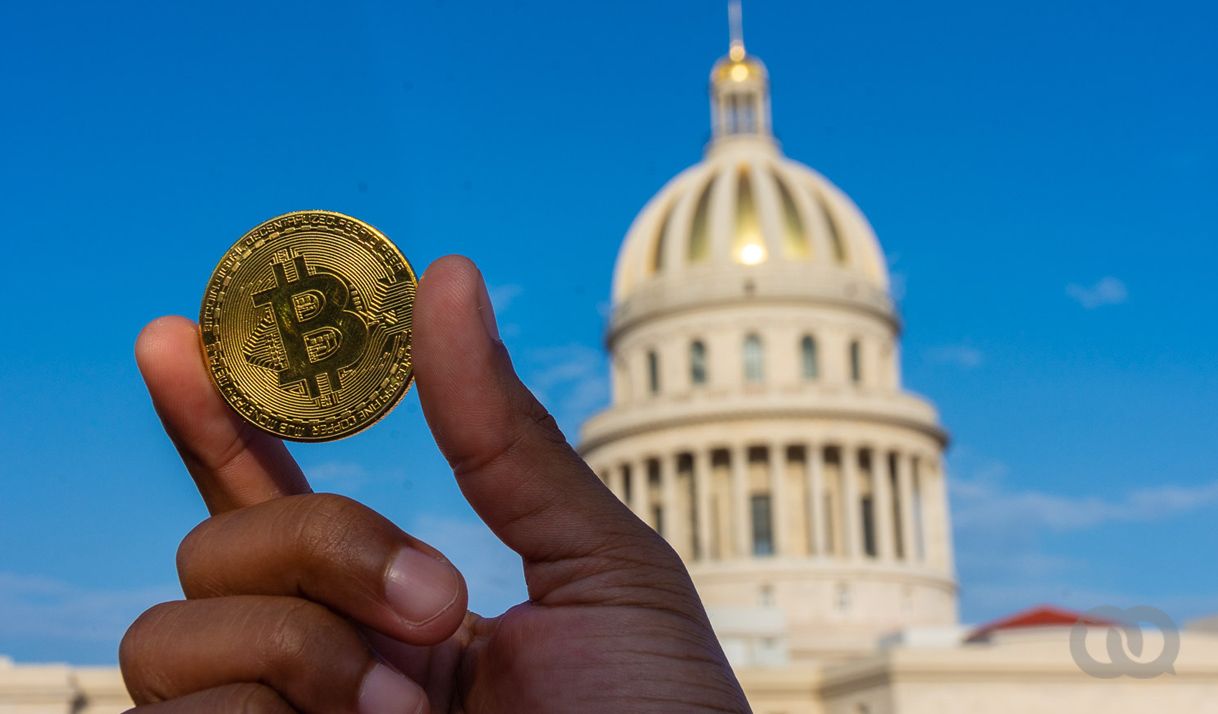Many Cubans hadn’t heard of cryptocurrency, four years ago. They were just about beginning to have Internet access and they didn’t know words like “bitcoin” and “blockchain”.
However, people are talking about a cryptocurrency market today, with users from every province. Twitter account Space spoke about the development, prospects and challenges for this market on How is the cryptocurrency market in Cuba?, with input from business founders linked to the crypto world.
Interviewees pointed out many reasons for why cryptocurrency was adopted in the beginning as a form of payment. “The current cryptocurrency situation is linked to Cuba’s informal market of the dollar and euro, and is a consequence of measures implemented in 2019 with the opening of stores that only accept MLC (a magnetic currency used with prices in USD),” Adrian C. Leon weighed in, the founder of Fusyona, one of the first exchanges that offered cryptocurrency to Cuban customers this year.
The decision to introduce MLC left informal buyers & sellers without access to the currency they needed to travel and affected their businesses to a great extent, Leon continues, talking about the people who would leave Cuba to buy products they then sold on the island. With their businesses hit hard, both sellers and other Cubans chose to emigrate, and to do that they needed to withdraw over the 5,000 USD which Customs allows you to take in cash. “People’s best bet was cryptocurrency,” he pointed out.
According to Adrian C. Leon, the migration crisis that has persisted for years has meant that more Cubans are outside of the country and need to send remittances back to their families on the island. “People who knew about cryptocurrency are still using it,” he says, referring to crypto as a means to send money to Cuba without going through Government hands.
“Transfer of value is the main focus given to cryptocurrency in Cuba today, which is its inherent nature,” explained Erich Garcia Cruz, founder of BitRemesas and QvaPAy; two well-known Cuban businesses that work with cryptoactives. “This transfer of value translates into remittances, in reserve. There are many people who prefer to save their incomes or buy cryptocurrency to hustle,” he added.
Garcia Cruz also revealed other benefits of using cryptocurrency in the Cuban context, especially in the business world. “I like people to also discover all of the potential crypto has to set up virtual stores, to buy or sell services online or products in and outside of Cuba for Cubans,” he said.
However, he added that these benefits aren’t being capitalized on yet among the business community. “Right now, the focus is on sending remittances or financial speculation between themselves, in regard to MLC,” he pointed out.
The influencer also advocated for the use of crypto as a channel to for businesses to grow, not as a means to an end. “Cubans with CUP (regular pesos) couldn’t buy anything on the Internet before; now, a Cuba with CUP can, via a service.”
According to Mario Mazzola, founder of the Qbita exchange, the existence of unclear investment schemes also led to many Cuban fans of cryptocurrency. “The reality is lots of people were scammed, but it played a very important role in teaching people about the subject. Maybe people dipped their toes in this world for the wrong reason, with the idea of magically making millions, but they learned a lot of useful things about technology, about how it works and how to manage a digital wallet.”
Mazzola also pointed out that the idea of looking for millions with cryptocurrency led some Cubans to invest their money in cryptoactives and wait for the value to go up, an investment strategy called “holding”. It worked for some people; others didn’t understand what the real value of this technology was in the beginning, they let themselves follow promises of magic profits, and we know how that story ends.”
During Space, Abraham Calas, elTOQUE’s development and innovation director, presented the updated representative rate for cryptocurrency on the informal market, as well as a calculator to understand the equivalent in cryptocurrency of a certain sum in Cuban money (CUP or MLC). The calculator uses the values of the rate as a reference.
In regard to tolls and challenges for adopting cryptocurrency, Cuban businessman Luilver Garces pointed out that you should always seek out final products that are “digestible.” “If you are able to get a child to understand what cryptocurrency is, you’ve won; if you are able to get your grandmother to understand what cryptocurrency is, you’ve won but you won’t until this happen, there’s still a lot of work to be done,” he said.
One of the interesting things that can be seen the most in the Cuban crypto market is the dollar being taken as a fraction of cryptocurrencies. On this subject, Erich Garcia Cruz said that this phenomenon happens because of people’s fear of the volatility of prices. “People always structure buying or selling prices against the dollar.”
“This experience has taught me that many people have come from using other currencies, not necessarily crypto,” Liuver Garces explains, referring to the job of platforms such as PayPal. “The phenomenon of putting cryptocurrency against the dollar as a reference during operations maybe comes from the fact people started off talking in dollars,” he says.
About differences between prices on the Cuban and international markets, Adrian C. Leon explained that it’s a consequence of the decentralization of cryptocurrency. “The price of bitcoin in Cuba has nothing to do with the price in the US, with the price in Brazil, and this is going to happen with other countries.”
Cryptocurrency hasn’t been adopted on a mass scale in Cuba yet and Mario Mazzola has pointed out that this may be because of the way it works, as it focuses on peer to peer operations and you need a digital wallet. “It isn’t so easy for somebody who isn’t highly motivated to embark on this learning journey.”
According to Mazzola, the lack of trust that unclear investment schemes created also had an impact and meant that people decided not to use cryptoactives, in addition to price volatility.
Liulver Garcia belives that people’s late access to the Internet on a mass scale in Cuba, in 2018, has meant that there isn’t a lot of know-how on subjects linked to blockchain and cryptocurrency such as bitcoin. “First of all, we need to computerize the country, learn a whole load of concepts that weren’t born yesterday with the Internet from four years ago up until now, but that exist and existed even before the Internet, such as privacy and data protection,” he explained.
“The challenge is more educational rather than technological,” Erich Garcia Cruz pointed out. “There are processes with cryptocurrency that don’t exactly require actors to know what a private key is or how to encode a transaction on the blockchain,” he said. Plus, he cited the Moon Wallet – a digital wallet that allows instant bitcoin transactions – as an example, and the lack of knowledge about how it works exactly.
In the last section of Space, some interviewees offered their point of view on what would be the best step to take in a context where bitcoin has very low prices. “If the bitcoin is below 20,000 right now – which isn’t the case, it’s higher -, I’d wait for it to go down to 15,000, for example, to go out and buy; and if I have bitcoin I bought cheap, I’d wait for it to go to 30,000,” Luilver Garces said.
“If you believe in bitcoin, it’s better to buy it when it’s worth 20,000 and not when it’s worth 68,000,” Mario Mazzola recommended, explaining that it isn’t a good idea to sell personal assets to do this.
“My greatest recommendation is always to follow the basic rule of trading (buying/selling to make a profit), which is never to invest any more than you’re willing to lose,” Adrian C. Leon, founder of Fusyona, said.
This article was translated into English from the original in Spanish.


If you believe that our journalism is important for Cuba and its people, we want you to know that this is a critical moment.
Behind each publication there is a team that strives to ensure that our products meet high quality standards and adhere to professional and ethical values.
However, to keep a close watch over government, demand transparency, investigate, analyze the problems of our society and make visible the hidden issues on the public agenda is an effort that requires resources.
You can contribute to our mission and that is why today we ask for your help. Select the way you prefer to send us a donation.









comments
We moderate comments on this site. If you want to know more details, read our Privacy Policy
Your email address will not be published. Mandatory fields are marked with *